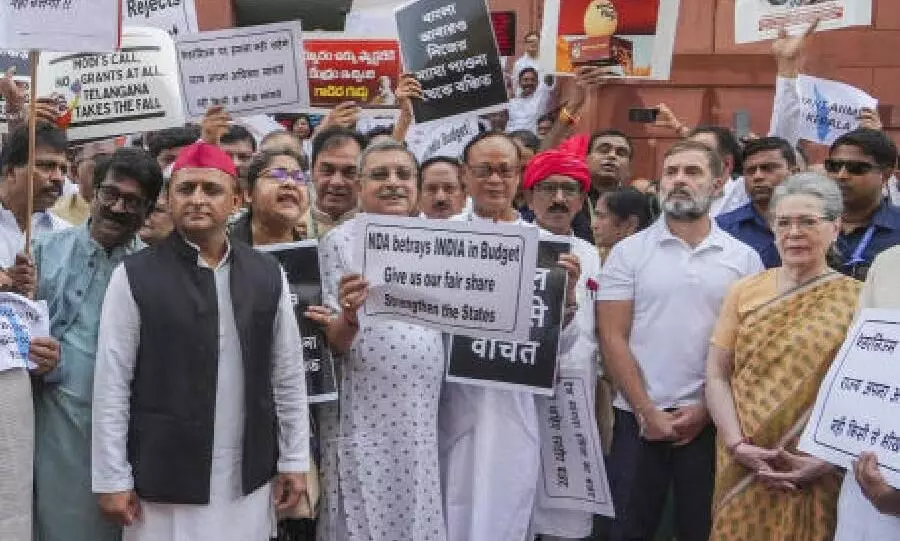
Opposition line-up against financial discrimination
text_fieldsThe Central Finance Commission is a body envisaged under Article 280 of the Constitution to analyse the financial relations between the Centre and the States and oversee financial transactions. The interventions of the Commission, which has a five-year term, are crucial in the country's economic planning and resource allocation. Therefore, state governments and the media take the appointment of each Finance Commission and the announcements made by them very seriously.
The tenure of the 15th Finance Commission has come to an end, and the 16th Finance Commission, which was formed in January, has started functioning. The 16th Finance Commission, chaired by former NITI Aayog vice-chairman Arvind Panagariya, is expected to submit its fiscal planning and tax allocation proposals within a year. In this context, opposition-ruled states, including Kerala, have formed a new united front before the Commission against the central government's financial discrimination.
It can also be said that the states, which have clashed with the central government's discriminatory approach to tax allocation, are preparing for a new protest to protect economic federalism. It is no coincidence that Kerala, as the state that has faced this discrimination the most, is leading the front. Kerala is convening a conclave of opposition states in Kochi on September 12 as part of the objective of taking an agreed stand before the Finance Commission and winning their rights, including an increase in the tax share. It is expected that a definite understanding will be formed regarding the needs of the states at the conclave, which will be attended by the finance ministers, finance secretaries, and top officials of Tamil Nadu, Karnataka, Telangana, and Punjab.
Following this, protest programmes based on these demands will be chalked out. This is an absolutely necessary move. One need not hesitate to laud the Kerala government for taking the initiative for such a move. Kerala’s opposition leader VD Satheesan, despite his strong disagreements with the financial management of the state government, including KIIFB, inside and outside the assembly, is also cooperating with the conclave. Perhaps, the opposition is participating in this struggle as part of the realisation that they must resist the Centre's encroachment on economic federalism.
It can be said without doubt that states, including Kerala, have been in the grip of a unique economic blockade for the past decade. This is apart from the fact that measures such as demonetisation, implemented in the name of economic reforms, have broken the backbone of the country's economy. The Modi government has put severe pressure on states ruled by opposition parties by not giving due financial allocations and setting limits on borrowing. When a project like KIIFB was devised to overcome this, impediments were placed before that too. Kerala has approached the Supreme Court on the issue.
In continuation of this, Kerala has entered the scene with a new strategy of protesting before the Finance Commission. Finance Minister K.N. Balagopal has provided a precise explanation for this step. He said, "During the 10th Finance Commission, Kerala received 3.8 per cent as its share, but it was reduced to 1.92 per cent during the 15th Finance Commission. According to the 10th Finance Commission, Rs 48,000 crore was to be received, whereas according to the 15th Commission, only Rs 24,000 crore was received. While many other states did not see a reduction in their tax share, Kerala has suffered such a reduction."
The discrimination in tax allocation is clear in the minister's words. Until the time of the 12th Finance Commission, Kerala's tax share averaged above 3.5 per cent. This has now come down to below two per cent. Unless strong pressure is exerted, it is likely to decrease further. Moreover, the possibility of stronger 'economic sanctions' against Kerala, which has brought the KIIFB issue to the Constitution Bench of the Supreme Court, cannot be ruled out in the current scenario. Therefore, for the state government, which does not have enough money even for its daily expenditure, the protest programmes, including this conclave, must also be seen as a means of survival. Along with this, it constitutes strong resistance against the economic fascism of the Modi government.


























